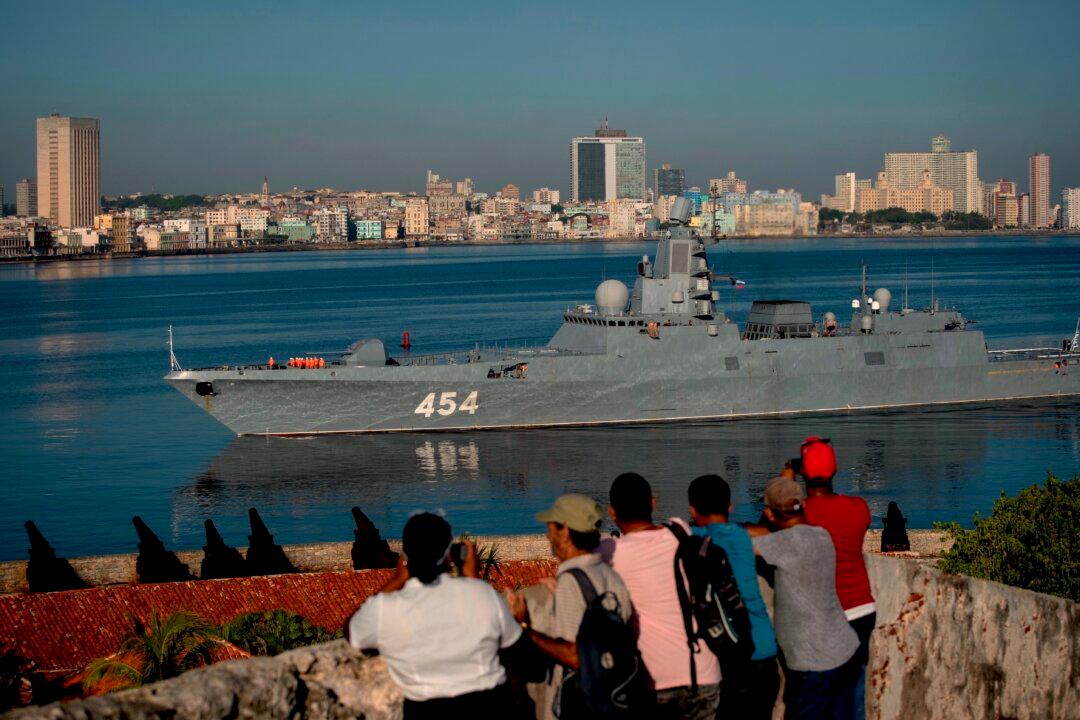Russian warships will be deployed to the Caribbean Sea next week, the Cuban foreign ministry confirmed on June 6.
The four Russian navy ships do not carry any nuclear weapons and will not present a threat to the region, Cuba’s foreign ministry said in a statement, confirming reports that cited unnamed U.S. officials.





